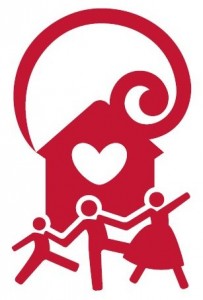The role of a secretary is to support the chair in making sure that the committee is effective.
A key part of this role is to ensure that the Administration functions of the committee run smoothly. The role is supported by staff employed by SARA
The secretary is responsible for:
Making sure that the minutes of meetings are taken (and a record is kept).
To keep a record of all those who attend each meeting.
To notify the chair of any issues – e.g. the meetings are inquorate, clarifying decisions
for minutes, informing meetings of apologies, etc.
Sending invitations to relevant people, and receiving acknowledgements of attendance.
Receiving and sending correspondence on behalf of the group. Informing the committee
of all correspondence.
Assisting with the production of publicity on behalf of the group.
To keep a copy and appropriate files on behalf of the group.
To assist with the arrangements for social events as agreed by the group committee.
The secretary’s role is one that can be split between committee members. If a group decides to do this they should clarify the responsibility of each different role. For example:
Minutes Secretary – responsible for taking and distributing minutes.
Social Secretary – responsible for arranging and promoting social activities of the
group.
Public Relations Secretary – responsible for the production of all publicity and
literature on behalf of the group. This person could also be responsible for ensuring
that the group hold events to celebrate their success.
Critical Duties:
1. To ensure the committee functions properly
The secretary plays a key role in supporting the chair and committee to function effectively. This would include making sure that all the arrangements for meetings are in place; an effective filing system is in place, to enable the committee to find things easily; informing the chair if the meetings are not quorate; all correspondence is dealt with and replied to as required.
2. To ensure the committee’s administration is effective
This does not mean that the secretary has to do everything themselves. They should make
sure that all committee members know who is responsible for certain tasks and where items are filed; establish a clear procedure for setting the agenda with the chair; set reasonable deadlines for agenda items and any reports or documents to be placed on the agenda (Note: emergency items are the exception to this) and circulated to members as appropriate; ensure that a record of members is in place and up to date.
3. Act as the main point of contact for the organisation
The secretary is the main point of contact for external organisations.Therefore they should be open to having their contact details in the public domain. In addition the secretary may find it useful to have their contact details distributed to other relevant groups, who do similar work or can assist in key areas of work the group wish to participate. The committee should be informed of all relevant information received.
Quality, skills and knowledge:
Team Player: Includes;
Works well with chair and other committee members
Respects confidences
Good organiser – who enthuses others to help
Support the group to build effective relationships with others
Organiser: Includes;
Methodical, someone with an eye for detail
Good organisational skills
Administration skills
Knowledgeable on committee procedures
People Orientated: Includes;
Is approachable for committee and other members
Is sensitive to the feelings of others
Is a good networker
Is willing to support colleagues to achieve
Strategic: Includes;
Has good knowledge of organisations governance documents
Understand how their role has an impact on the effective and smooth running of
the organisation
Uses their contacts to assist the organisation and committee members to achieve
the groups aims
Regularly reminds the group of their aims and achievements

